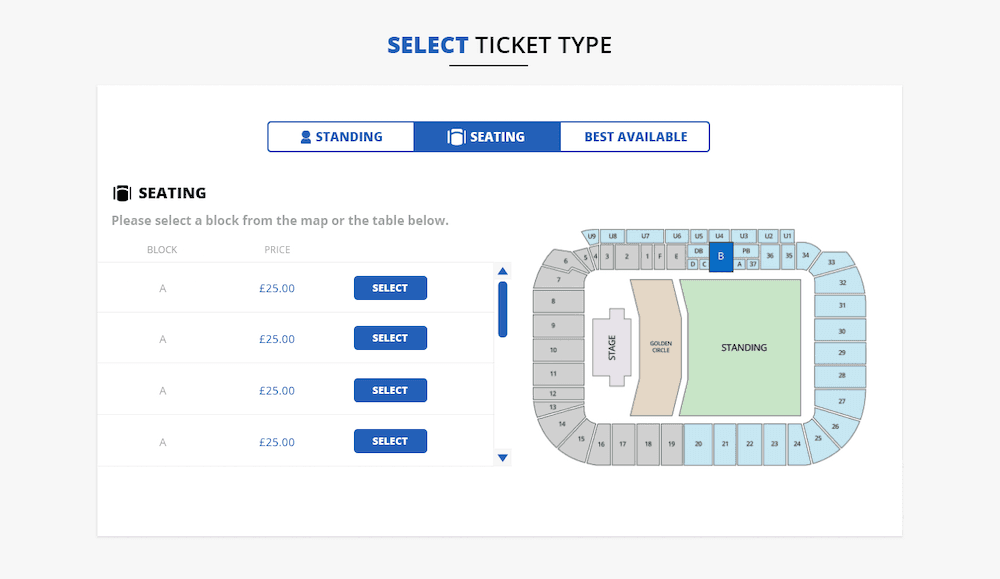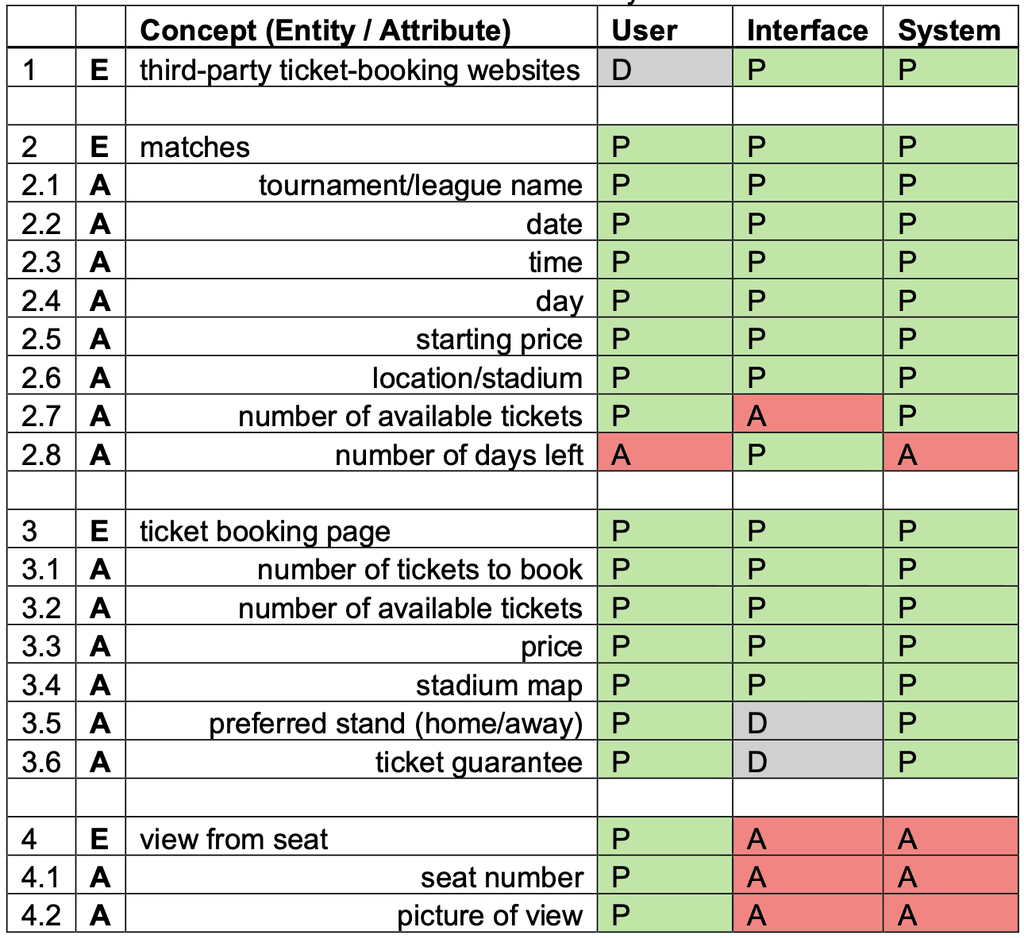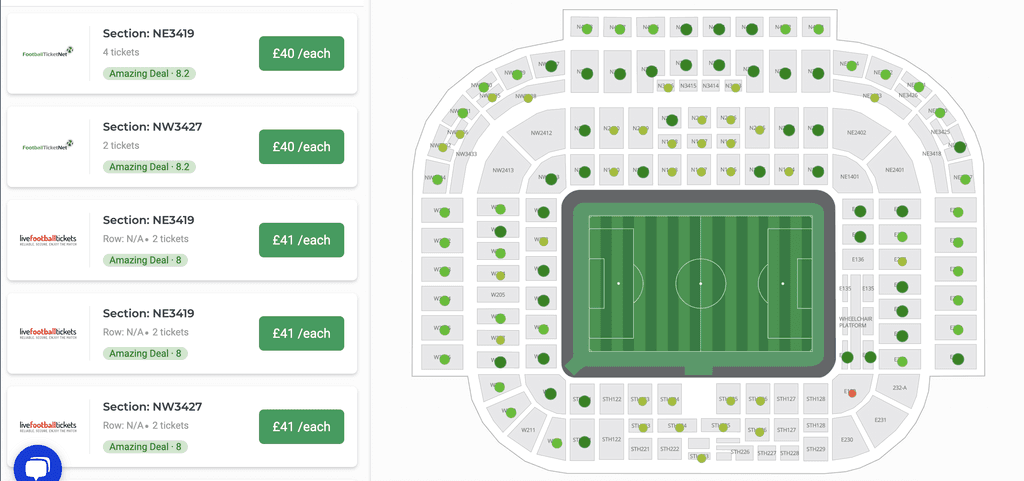Overview
Football fans often face difficulties when planning travel for Premier League games, including challenges with booking tickets and accommodations. To understand user behaviour in this context, I conducted naturalistic observations of football fans navigating the process, employing two analytical frameworks: Concept-based Analysis of Surface and Structural Misfits (CASSM) for ticket booking and Situated Action (SA) for accommodation booking. This coursework study explored how mismatches between users' mental models and system interfaces can hinder the overall experience.
Challenge
The primary challenge was identifying points of friction in user interactions during the booking process. Football fans, both novice and experienced, encountered issues like unclear seat mapping, hidden away stand information, and difficulty assessing ticket availability. Accommodation booking posed challenges like misleading filters, hidden pricing, and a lack of clarity in hotel amenities. The goal was to improve usability by aligning system features with user expectations and behaviours.
Solution
I conducted naturalistic observations and think-aloud sessions, uncovering several user pain points. These findings led to design recommendations, such as clearer information on seating options, ticket guarantees, and better filters for accommodations, ultimately improving trust and usability.
User Research
To capture natural behavior, I recruited three participants, all football enthusiasts, and observed them as they planned a trip for an away Premier League game. The tasks included booking match tickets and securing accommodation for the weekend. Data collection involved screen recordings, think-aloud protocols, and interviews. I probed their thought process and decision-making while navigating the interfaces.
For match ticket booking, CASSM was employed to analyse surface misfits—discrepancies between the system's conceptual model and the user's mental model. For accommodation booking, Situated Action allowed me to explore how users form a shared understanding with the system, particularly how system limitations affect user decisions.
Findings
Match Ticket Booking: Surface Misfits
Ticket Guarantees
The unclear representation of ticket guarantees on third-party sites led participants to hesitate or abandon the booking process. One user remarked they would avoid purchasing tickets without visible guarantees, further highlighting the importance of clear assurances.
Seat View
Participants highly valued the ability to view the pitch from their seats, a concept absent from the booking interface. Two users relied on third-party websites to visualize their seat view, reflecting the system's failure to meet a critical user need.
Away Stand Confusion
Fans struggled to locate the away stand in the stadium map. Participants expected this feature to be clearly marked but found it hidden in a poorly labeled legend. This mismatch between their expectations and the system's interface led to frustration and, in one case, caused the user to book tickets for an alternative game.
Accommodation Booking: Situated Action and Shared Understanding
Misleading Filters
Users applied filters for price and location, expecting relevant results. However, participants frequently encountered irrelevant options, leading to confusion and extended time spent searching. One participant abandoned the process entirely after multiple failed attempts to find suitable accommodation.
Expectation Mismatches
Participants expected features like “city views” to match the imagery presented on hotel pages, but this often led to confusion when reality differed from system cues. In one instance, a participant changed their plans due to inaccurate cues, ultimately booking a different accommodation.
Pricing and Availability Issues
Hidden pricing details, particularly room availability for multiple nights, caused frustration. One user struggled to understand whether they could book for two consecutive nights, resulting in task abandonment.
Based on the findings, I proposed the following improvements to enhance user experience for both match ticket booking and accommodation systems:
Improve Information Clarity
Clearly label critical information, such as the away stand location, seating views, and ticket guarantees. Place this information where users expect it to reduce confusion.
Preview Features
Add features that allow users to preview seat views and hotel room views, empowering them to make more informed decisions without needing external resources.
Enhance Filter Functionality
Ensure filters work accurately and consistently to display results that match user expectations. Make pricing, availability, and room options clear upfront.
Trust-Building Features
Prominently display guarantees and assurances during the booking process to increase user confidence and reduce hesitation in completing purchases.
Solution and Impact
The research highlighted critical usability issues that hindered users' ability to book tickets and accommodations smoothly. By addressing these surface misfits and aligning system features with user expectations, I designed a solution that prioritises clarity, trust, and ease of use. The recommendations provide actionable steps for improving digital systems in the travel and sports booking domain, ensuring that users can navigate these processes with greater confidence and efficiency.


